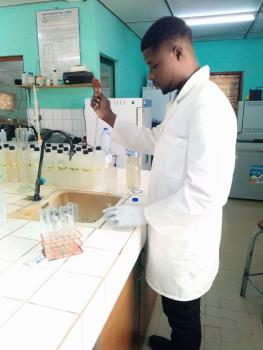African Water and Sanitation Association and USAID Award Research Grants to African Water and Sanitation Students
As part of its capacity-building program for African stakeholders in the water, sanitation, and hygiene sectors, the African Water and Sanitation Association (AfWASA), with funding from the United States Agency for International Development (USAID) and the Bill and Melinda Gates Foundation, awards research grants to African master’s and doctoral students and young professionals in the water and sanitation sectors.
Each grant, worth a maximum of $1,000, enables students who are often faced with financial constraints to meet research-related costs, such as laboratory materials, travel for field studies, and printing. These grants enable the students to fully focus on their projects; conducting in-depth, rigorous research; and producing scientific reports.
Between the 2017 and 2024 academic years, thanks to financial support from USAID, AfWASA awarded over a hundred scholarships to students from West and Central Africa. The students were able to complete their research and defend their theses on topics or issues related to the water, hygiene, and sanitation sectors.
By investing in the training of young researchers, AfWASA and USAID are fostering the creation of a new generation of highly qualified specialists who are committed to finding sustainable solutions. Josue Iwessa Yawovi, a beneficiary in Togo, and Assé Akissi Elvessia, a beneficiary in Cote d’Ivoire, received scholarships for the 2022–2023 academic year.
Yawovi said, “I would like to thank AfWASA and USAID for this grant, which came like a breath of fresh air. It enabled me to finance the research part of my master’s degree. Thanks to this funding, I was able to recruit students to carry out the field survey, ensure my travel to take samples, pay for microbiological analyses, and pay for the preparation of reports. Finally, I defended my thesis and obtained the distinction “excellent” with an average of 18/20. I’m currently enrolled in a PhD thesis on water and environmental chemistry. I would like to thank AfWASA and USAID, without whom I would not have been able to defend my master’s degree within this timeframe.”
Elvessia said, “I heard about the scholarship through an acquaintance. I applied, and by the grace of God, I was selected. I was happy because it was an opportunity for me to carry out my research on the issue of human excreta in public and private primary schools. Conducting research requires financial resources, and sometimes we young people don’t have the means, so this scholarship enabled me to cover some of the costs, such as recruiting young people to collect data, printing documents, and the expenses of the defense itself. Thank you to AfWASA and USAID for supporting young people. Now I’m targeting a PhD and hope to do my thesis on access to drinking water and sanitary facilities in universities and primary schools.”



